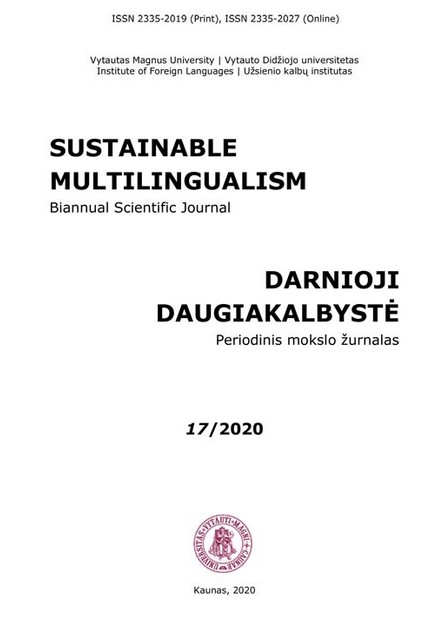THE OBJECTIVE AND SUBJECTIVE ETHNOLINGUISTIC VITALITY OF WEST FRISIAN: PROMOTION AND PERCEPTION OF A MINORITY LANGUAGE IN THE NETHERLANDS
THE OBJECTIVE AND SUBJECTIVE ETHNOLINGUISTIC VITALITY OF WEST FRISIAN: PROMOTION AND PERCEPTION OF A MINORITY LANGUAGE IN THE NETHERLANDS
Author(s): Helga Kuipers-Zandberg, Ruth KircherSubject(s): Language acquisition, Sociolinguistics, School education, Sociology of Culture, Ethnic Minorities Studies
Published by: Vytauto Didžiojo Universitetas
Keywords: Ethnolinguistic vitality; Language contact; Language maintenance; Language planning; Minority languages; West Frisian;
Summary/Abstract: The study presented here is the first contemporary investigation of the subjective compared to the objective ethnolinguistic vitality of West Frisian. West Frisian is a minority language spoken in the province of Fryslân, in the north of the Netherlands. The objective ethnolinguistic vitality of the language was established on the basis of policy documents and statistical data. To investigate the subjective ethnolinguistic vitality of the language, rich qualitative data were gathered by means of a questionnaire, which – due to low literacy rates – was administered to West Frisian speakers (N=15) in person. The primarily open-ended items in the questionnaire targeted different aspects of the three main socio-structural factors that constitute the ethnolinguistic vitality of a language: that is, status, demography, and institutional support. Content analysis was performed on the questionnaire data, using rounds of deductive and inductive coding and analysis. The results suggest that West Frisian has a certain amount of vitality, which constitutes a good basis for language planning to ensure its continued maintenance. Moreover, the findings indicate that overall, the subjective vitality tallies with the objective vitality in terms of status, demography, and institutional support. However, two aspects raised concern among the participants: firstly, as part of the status of West Frisian, there was concern about the language’s presence in the linguistic landscape (where subjective vitality matched objective vitality, but participants explicitly expressed the desire for a more persistent and pervasive presence of the language in public spaces); and secondly, as part of the institutional support for West Frisian, there was concern about the role of the language in the education system (where subjective vitality did not match objective vitality). The article discusses what implications the findings of this exploratory study – should they hold true – would have for language planning in the province of Fryslân.
Journal: Darnioji daugiakalbystė
- Issue Year: 2020
- Issue No: 17
- Page Range: 1-25
- Page Count: 25
- Language: English

